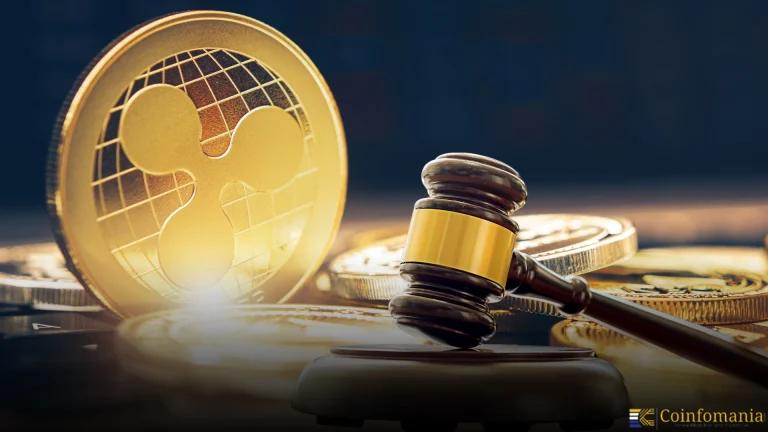Cryptocurrency Regulation in Bosnia and Herzegovina
Bosnia and Herzegovina (BiH) is a low-cost launchpad of crypto entrepreneurs who desire the benefits of being near the EU without being directly exposed to the Markets in Crypto-Assets Regulation (MiCA). An Anti-Money-Laundering and Counter-Terrorist-Financing Law that came into effect at the state level in February 2024, at long last defines virtual currencies and designates […]

Bosnia and Herzegovina (BiH) is a low-cost launchpad of crypto entrepreneurs who desire the benefits of being near the EU without being directly exposed to the Markets in Crypto-Assets Regulation (MiCA). An Anti-Money-Laundering and Counter-Terrorist-Financing Law that came into effect at the state level in February 2024, at long last defines virtual currencies and designates virtual-asset service providers (VASPs) as obligated entities to conduct KYC and report suspicious transactions.
Meanwhile, the Central Bank of Bosnia and Herzegovina (CBBH) is adamant and demands that the convertible mark (BAM) is the only legal tender and it is constantly reminding the consumers of the volatility of prices and fraud.
Historical Context
2018: central-bank Warning: CBBH declared that bitcoins and other cryptocurrencies could not be exchanged with BAM, and cryptocurrencies do not have legal-tender status.
2022: Republika Srpska reform: Republika Srpska reformed its Securities Market Law to acknowledge the virtual asset presence and grant the authority to control crypto business processes to its Securities Commission.
February 2024: State AML redesign: BiH adopted a comprehensive AML/CFT legislation that refers to the particular mention made regarding VASPs and their inclusion into the financial-intelligence system.
September 2024: MONEYVAL inspection: A fact-finding visit of the Council of Europe advised BiH to harmonize the control of virtual-assets across the board and strengthen the ability to enforce.
2025 MiCA age: The implementation of MiCA in the EU, BiH, along with other countries outside of the Union, promote themselves as a cheaper, MiCA-free on-ramp to European crypto consumers.
Regulatory Framework
Principal supervisors
- Central Bank of BiH: Establishes the policy in payment systems and again reconfirms that only BAM and authorized foreign currencies can be used as a legal tender.
- Financial-Intelligence Department: Applies the 2024 AML/CFT law and registers VASPs on a state level.
- RS Securities Commission: Reviews VASP notifications, and fitness-and-propriety tests within the RS entity.
Principal rules and recommendations
- Law on Prevention of Money Laundering and Financing of Terrorist Activities (Official Gazette BiH 13/24): This is the first BiH law that defines the concept of a virtual currency and that introduces the requirements establishing the KYC, record-keeping, and suspicious-transaction requirements to VASPs.
- RS Securities Market Law (2022 update): Sets the minimum governance framework, capital standards and prospectus standard of the token issuers and providers of the services operating in RS.
- CBBH circulars (2018 – present): do not allow crypto to be directly converted into BAM by the banks and alert citizens of the dangers of speculation.
Tax snapshot
The nationwide corporate tax rate is 10 percent of all profits including crypto-related ones. Dividends are exempt, and the majority of exchange services are VAT exempt since they are regarded as financial transactions.
Bosnia Crypto Policies
Legal tender: Though crypto can be owned and exchanged peer-to-peer, it cannot be used to settle invoices, instead, payments are to be made in BAM or any other accepted fiat currency.
Mining: Although it is not explicitly prohibited, the prohibitive cost of power and unstable grid restrict its industrial scale.
Trading: There is no fully licensed local exchange; the largest trading is in clusters on Telegram and WhatsApp and on offshore P2P desks.
Licensing: VASPs in RS have an obligation to inform the Securities Commission; in the Federation of BiH and Brcko District they still register only with the AML rules in the country, but only because the local rules have not yet been adopted.
Crypto Innovation Approach
Developers targeting the two-million-strong diaspora, as well as the merchants who have to deal with spotty broadband, are working on lightweight, mobile-first solutions. USSD stable-coin wallets allow traders to receive USDT in feature phones and cash-out via kiosk agents, and university pilots in Banja Luka and Sarajevo trial blockchain traceability of forestry exports and agri-produce. Fragmented rules do not overshadow low labour costs and geographic proximity to EU customers to make BiH an attractive sandbox.
Challenges and Issues of Note
- Regulatory patchwork: RS has a crypto rule book; Federation and Brcko rely only on the AML law, which promotes forum-shopping.
- Bank de-risking: Crypto-linked wires are blocked regularly by domestic banks, leaving firms with no other option but to hold accounts overseas or conduct business in cash.
- Consumer-protection gap: Telegram trading groups are still full of scammers, and skills in law enforcement are behind.
- Costs of AML compliance: the FATF-style KYC requirements apply to start-ups despite the fact that supervisory capacity remains in its infancy.
Important Regulatory Trends and Prospects
- Federation FinTech Bill (Q4 2025) Proposed legislation will give entity-wide VASP licensing that reflects RS standards and include the FATF Travel Rule.
- Selective MiCA alignment: Policymakers are looking into adopting main MiCA standards, like white-paper disclosure, and keeping their less demanding capital rules in order to remain competitive.
- MONEYVAL follow-up (2026): BiH should demonstrate some practical advance in enforcement or risk going grey.
Conclusion
Bosnia and Herzegovina is a country divided in two: a thriving grass-roots crypto ecosystem powered by remittances and low costs and a regulatory environment that is still coming together in three jurisdictions. Swift, aligned licensing, combined with sensible banking direction, would transform the presently unregulated market into a managed centre of remittance, SME finance and fintech exports to the region. Any delay may drive legitimate innovators offshore and leave consumers at risk.
FAQs
1. Does cryptocurrency have a legal status in BiH?
No. The convertible mark and some foreign currencies are the only ones recognised as a legal currency by the Central Bank.
2. Is it legal to trade in and/or possess Bitcoin in the country?
Yes. The possession and peer-to-peer trade are legalized across the country, but the users are not covered by the statutory consumer protection.
3. Do exchanges need a local license?
In Republika Srpska only, VASPs are required to inform the Securities Commission. In the Federation or Brcko no full licence regime has been established.
4. What is the legislative instrument that regulates AML obligations of crypto businesses?
The 2024 AML/CFT Law at state level classifies VASPs as obligated entities on which KYC, record-keeping and suspicious-transaction reporting requirements are imposed.
5. Which taxes are placed on crypto gains?
The rate of tax on corporate income (including crypto-generated income) is 10 percent; dividends are not taxed and most exchange services are exempted from VAT.
6. Is mining banned?
No specific prohibition exists but the cost of energy, blackouts and customs obstacles put off large-scale operations.
7. Is Bosnia following EU MiCA?
Not yet. Being a non-EU country, BiH is discussing the selective alignment and retaining the lesser capital and audit requirements.
8. What is the RS registration time?
Expert companies assess that it takes four to six weeks between submission of KYC and the VASP notification in case of complete documentation.
9. Do local banks support cryptos?
Generally not. The vast majority of lenders exclude or slow down crypto-based transfers due to the perceived AML risk.
10. What is the next regulatory giant step?
The draft FinTech law of the Federation, which is yet to appear in parliament in late 2025, will hopefully result in the complete licensing of VASPs throughout that entity and bring BiH a step closer to the unified national framework.
Follow us on Google News
Get the latest crypto insights and updates.
Related Posts

Ripple Highlights Custody as Key to $18.9T Tokenized Assets by 2033
Shweta Chakrawarty
Author

Hong Kong SFC Issues New Custody Rules for Crypto Platforms
Shweta Chakrawarty
Author

South Korea and Vietnam eye $150B trade despite Trump tariff
Shweta Chakrawarty
Author